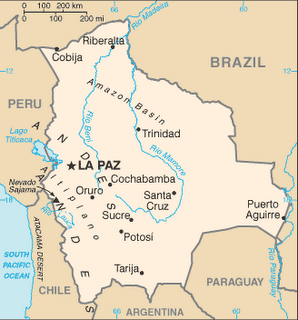Sudan: To Intervene or not To Intervene

“The United States is committed to ending the violence and providing assistance to the suffering people of Darfur, as well as ensuring the peaceful democratic transformation throughout Sudan.” – US Department of State
A Mixed History of Interventions
Traditionally, the United States has only chosen intervention when the perceived gain exceeded the perceived cost. During the period of the Cold War, the calculus that was used in making such a cost to benefit analysis was heavily colored by the fear of communism and the belief that the failure to intervene would hand victories, literal and moral, to the forces of communism that were massed against the free world. The collapse of the Soviet Union and the subsequent headlong rush by many former Soviet states towards the West, market economies, and democratic governance has shifted the calculus such that the costs of failing to intervene are less obvious and the benefits of any such intervention more obtuse. Interventions that have taken place outside the parameters of the Cold War have tended to go poorly, with little obvious benefit to the United States.
Two examples of such failed interventions are the stationing of Marines in Lebanon in the early 1980’s and the humanitarian mission to Somalia in the early 1990’s. In the former case, Marines were sent to Beirut to oversee the withdrawal of the PLO, but were quickly withdrawn after a suicide bomber killed 241 while they slept in their barracks. The Somalia intervention was intended to feed the people left starving by years of civil war and political chaos. Unfortunately, American leaders soon learned that the effort was undermined by the persistent and unrelenting fighting. The decision was made to take a pro-active stance in restoring stability to the country. This led to the “Black Hawk Down” incident and the US again turning tale and getting out before the mission was seen to successful completion. In each of these cases, the value that could have been gained by intervention was nullified by the cost of live, prestige, money and credibility on the world stage.
It was against the backdrop of these failed intervention that, in 1994, that the Clinton Administration learned of a campaign in the central African nation of Rwanda that sought to purge the region of one ethnic group, the Tutsis, and sympathetic or moderate members of another group, the Hutus. The Clinton administration realized that the United States had no compelling national interest in Rwanda. However, the United States was also a signatory to the International Convention on Genocide and would, therefore, be compelled to take action if there was a United Nations declaration that genocide was taking place. US Secretary of State Madeline Albright, fully aware of the event transpiring in Rwanda, actively lobbied members of the Security Council NOT to call the violence genocide. She did this, despite the obviously dubious moral component of advancing such an argument, because intervention in Rwanda was not seen to be in the United States best interest. Ultimately, when the costs of the Rwandan genocide became known, it was possible to judge the merits of that decision, but the fact remains that no American lives were lost, nor American riches squandered in pursuit of a resolution. None the less, the stigma of failing to act in light of the scale of the inhumanity that transpired also carried a cost far greater than that calculated by the Clinton Administration at the time. To this day, Bill Clinton calls his failure to act his greatest policy mistake while in office. It does, however, show just how difficult and wrought with peril the calculus of intervention can be. It, then, should come as no surprise that no nation has acted with surety in response to the crimes now taking place in the western Sudan region known as Darfur.
US Policy and the Darfur Crisis
Let’s take a moment to analyze the costs and benefits of intervention in Darfur on the part of the United States and then look at the actions taken by the United States in order to determine whether this analysis provides a useful insight into American policy. As far as the costs of intervention, it is important to consider current US military deployments, US troop levels, the logistical hurdles of moving men and equipment into the region, the political costs of alienating nations such as China and Russia that maintain good relations with Sudan as well as the difficulty of finding language for a UN resolution, or mandate, to allow intervention. Without such UN backing, the political costs of intervention increase considerably as can be attested to by the response to the US intervention in Iraq, another case where the costs of intervening seem to outweigh the accrued benefits to the US. Furthermore, Sudan produces more than 400,000 barrels of oil each day, any action that might destabilize the country, or panic the market, would result in higher costs to the United States as well. Add to this the desire on the part of policy makers to continue sheparding Sudan towards implementing the peace agreement reached earlier this year to end the longstanding fight between Muslims in the north of the country and Christians in the South as well as the continuing need for Sudanese cooperation on the War on Terrorism and you begin to see the constraints under which US policy makers must operate.
US Policy and the Darfur Crisis
Let’s take a moment to analyze the costs and benefits of intervention in Darfur on the part of the United States and then look at the actions taken by the United States in order to determine whether this analysis provides a useful insight into American policy. As far as the costs of intervention, it is important to consider current US military deployments, US troop levels, the logistical hurdles of moving men and equipment into the region, the political costs of alienating nations such as China and Russia that maintain good relations with Sudan as well as the difficulty of finding language for a UN resolution, or mandate, to allow intervention. Without such UN backing, the political costs of intervention increase considerably as can be attested to by the response to the US intervention in Iraq, another case where the costs of intervening seem to outweigh the accrued benefits to the US. Furthermore, Sudan produces more than 400,000 barrels of oil each day, any action that might destabilize the country, or panic the market, would result in higher costs to the United States as well. Add to this the desire on the part of policy makers to continue sheparding Sudan towards implementing the peace agreement reached earlier this year to end the longstanding fight between Muslims in the north of the country and Christians in the South as well as the continuing need for Sudanese cooperation on the War on Terrorism and you begin to see the constraints under which US policy makers must operate.
On the other hand, the benefits of intervention seem less obvious. As stated before, there is certainly a moral component to ending the suffering of the people of Darfur, but never has policy been made on purely humanitarian grounds no matter how the White House might want to frame the Iraq invasion. There is an obvious benefit to replacing the current leadership of Sudan, but such an objective would be beyond the limited mission that any intervention in Darfur would necessitate. Stabilizing the region may head off a war with neighboring Chad, but the US doesn’t appear to have a dog in that fight either.
Therefore, to garnish the maximum amount of value from the conflict, one would expect the United States to take a measured diplomatic line against Sudan, support NGO’s working in the region and maybe help fund African Union monitors, Chadian social services and the UN High Commission on Refugees that works in the region while promoting whatever peace initiative might be put forward. All of these actions satisfy the secondary concern of policy-makers, to be seen as helpful, and moral, without engaging in any behavior at odds with their primary concern; raising the cost of involvement beyond the value that the nation might see from a limited role.
What form, then, has American policy taken on the question of Darfur? According to Smith Professor Eric Reeves, the United States had spent a great deal of capital on securing the North-South agreement and did not want to jeopardize those negotiations by leaning hard on Khartoum about Darfur. The Sudanese government realized this and considered it a green light to take whatever action they desired in Darfur. Secretary of State Condi Rice declared Darfur “an African problem that needs an African solution” wrapping the lack of a US response in the language of empowerment and pan-African pride in order to deflect criticism for the US’s tepid response. She went on to say, “"The African Union has the lead in this, we have tried to help and we will continue to try to help but I think Africans believe this is a conflict... best resolved on the ground by Africans."
Smith Professor Eric Reeves sees this strategy for what it is, “The larger point here is that A.U. (African Union) troops alone are both insufficient and merely a default policy--one that frees the Bush administration and its feckless European allies from the need to contemplate humanitarian intervention on an appropriate scale.” Where I disagree with Reeves on this point is only in so much as it is not the policy that has freed the Western powers from acting, but rather a rational analysis by these powers that the costs of intervention far outweigh the benefits, where as the cost of supporting the A.U. is low and risks little tangible national treasure. Therefore, it was rather the rational desire of the US and other powers not to act that led inevitably to the policy.
Ironically, it is the opposition coming from Moscow and Beijing on the Security Council that gives the US the cover necessary to dodge any obligation to act on behalf of those suffering in Darfur. Any declaration of genocide from the Security Council would necessitate action, but because Russia and China would block any such declaration, the US is free to label the conflict a genocide and stake out the moral high ground without threat that US forces will be called to action. Again, this constitutes a low cost action with high symbolic value, perfectly consistent with a rational policy analysis.
The Future of US Policy in Sudan
While it is likely that the US will remain relatively engaged with Sudan as the implementation of the North-South accords continues and the recently signed Darfur peace accords are brought into effect, the chance of a significant change in US policy remains unlikely. As long as the US continues to view Darfur as a distraction from the bigger diplomatic prize, the North-South Accords, it has no motivation to act decisively on the matter. If the North-South Accords seem to be breathing on their own, as it were, then the US will have greater leverage to play against the Sudanese government on the Darfur question. The potential success of the Darfur peace deal and the plan to augment A.U. forces with NATO troops might also give the US the necessary cover for a limited deployment as part of a larger international force. However, nothing can change geography. Sudan remains a poor, land-locked country in the poorest, most under-developed region of the world. The likelihood that events there might result in a broader, more forceful US response is unlikely. That would require a significant change in the cost-benefit analysis being used by US policy makers. I cannot, at this time, perceive of any such action that might precipitate such a shift. One can then reasonably assume that it is unlikely that the US position on Sudan will change in the future to such a degree that any significant, or unilateral, US presence will be seen on the ground. US interests are best served in a support role; facilitating talks, shipping and distributing food aid, providing cash and training to A.U. forces, and using the international megaphone to shame Sudan into acting like a responsible member of the world community.
Ironically, it is the opposition coming from Moscow and Beijing on the Security Council that gives the US the cover necessary to dodge any obligation to act on behalf of those suffering in Darfur. Any declaration of genocide from the Security Council would necessitate action, but because Russia and China would block any such declaration, the US is free to label the conflict a genocide and stake out the moral high ground without threat that US forces will be called to action. Again, this constitutes a low cost action with high symbolic value, perfectly consistent with a rational policy analysis.
The Future of US Policy in Sudan
While it is likely that the US will remain relatively engaged with Sudan as the implementation of the North-South accords continues and the recently signed Darfur peace accords are brought into effect, the chance of a significant change in US policy remains unlikely. As long as the US continues to view Darfur as a distraction from the bigger diplomatic prize, the North-South Accords, it has no motivation to act decisively on the matter. If the North-South Accords seem to be breathing on their own, as it were, then the US will have greater leverage to play against the Sudanese government on the Darfur question. The potential success of the Darfur peace deal and the plan to augment A.U. forces with NATO troops might also give the US the necessary cover for a limited deployment as part of a larger international force. However, nothing can change geography. Sudan remains a poor, land-locked country in the poorest, most under-developed region of the world. The likelihood that events there might result in a broader, more forceful US response is unlikely. That would require a significant change in the cost-benefit analysis being used by US policy makers. I cannot, at this time, perceive of any such action that might precipitate such a shift. One can then reasonably assume that it is unlikely that the US position on Sudan will change in the future to such a degree that any significant, or unilateral, US presence will be seen on the ground. US interests are best served in a support role; facilitating talks, shipping and distributing food aid, providing cash and training to A.U. forces, and using the international megaphone to shame Sudan into acting like a responsible member of the world community.
The last thing the US wants to do is stumble into a diplomatic or military quagmire that can be easily avoided. Policy-makers do well to remember that, generally, there is much more to be lost when engaging in foreign relations than there is to be gained. It was this immutable fact of international relations that led political humorist P.J. O’Rourke to quip, “Any prolonged examination of the U.S. government reveals foreign policy to be America's miniature schnauzer—a noisy but small and useless part of the national household.” So goes our involvement in Sudan, as long as Central Africa remains useless to the US government, it is unlikely to warrant any response stronger than indignation and window dressing.

 Contact Me
Contact Me














